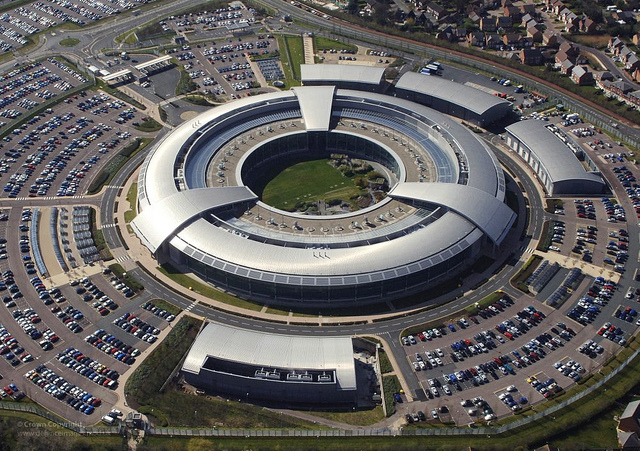GCHQ boss says UK must be vigilant againt Chinese tech firms
Jeremy Fleming said the UK will not compromise on 5G security

The head of GCHQ has said the UK is a world leader in cyber security but added that it must be alert to the potential dangers of using Chinese technology in its telecommunications infrastructure.
Delivering a keynote speech in Singapore on Monday, GCHQ director Jeremy Fleming said the UK had "the toughest oversight regime in the world" and that it was unwilling to compromise on security for the rollout of technologies such as 5G.
His comments come at a time when Chinese technology companies, most notably Huawei, have come under increased scrutiny from western countries over security fears.
The US, in particular, has aggressively moved to clamp down on the use of Huawei technology, as it believes the company has ties to the Chinese government and is encouraging its allies to boycott the company when considering 5G partners.
Huawei has always maintained that it operates independently of the Chinese state, and points to its existing influence in the 4G industry.

GCHQ director Jeremy Fleming said the UK will not compromise on 5G security
"GCHQ is at the heart of the policy consideration underway and we already have a role managing Huawei's presence in our existing networks," said Fleming.
Sign up today and you will receive a free copy of our Future Focus 2025 report - the leading guidance on AI, cybersecurity and other IT challenges as per 700+ senior executives
"We think this is probably the toughest oversight regime in the world. [Huawei has] revealed significant problems with their cyber security practice... which have caused them to commit to a multimillion-pound remedial programme. We've been crystal clear that with Huawei we will not compromise on the improvements we expect."
Fleming also reiterated that the UK has yet to decide on what security policies it will enforce to govern 5G supply chains.
The National Cyber Security Centre, which is part of GCHQ, issued a letter to telecoms companies in November warning that extra care should be taken when selecting 5G suppliers and that security should remain a priority. Analysts believed the letter, which did not specify any companies of concern, was directed against Chinese companies such as Huawei and ZTE.
BT announced in December that it would be removing Huawei equipment from its 4G network in order to fulfil a 2006 pledge that it would distance itself from any technology deemed to be a potential security risk. In that case, BT became concerned that Huawei's engineering process had repeatedly failed to mitigate security risks in its base source code, but added that the company would remain an "important equipment provider and innovation partner".
"We have to understand the opportunities and threats from China's technological offer, understand the global nature of supply chains and service provision irrespective of the flag of the supplier," said Fleming, adding that the UK must "take a clear view on the implications of China's technological acquisition strategy in the west."
The US has launched legal action against the firm that alleges further instances of illegal activity, including bank fraud, obstruction of justice and theft of technology.
Huawei's founder, Ren Zhengfei, told the BBC that US attempts to "crush" his company would be blocked, and suggested that the company continues to be instrumental in the rollout of cutting-edge technology.
Beyond the scope of Huawei and China, Fleming said UK's position as a leading cyber power means it must be prepared to conduct its own cyber attacks to disrupt organisations such as ISIS.
"The UK is a global cyber power with the potential to provide leadership in this debate. GCHQ is at the heart of that and will make sure the opportunities presented by this cyber future are fully realised."
Dale Walker is a contributor specializing in cybersecurity, data protection, and IT regulations. He was the former managing editor at ITPro, as well as its sibling sites CloudPro and ChannelPro. He spent a number of years reporting for ITPro from numerous domestic and international events, including IBM, Red Hat, Google, and has been a regular reporter for Microsoft's various yearly showcases, including Ignite.
-
 Will autonomous robotics leap forward in 2026?
Will autonomous robotics leap forward in 2026?In-depth Connectivity and cost benefits remain barriers, despite breakthroughs in physical AI
-
 AWS and NTT Data team up to drive legacy IT modernization in Europe
AWS and NTT Data team up to drive legacy IT modernization in EuropeNews Partnership between AWS and NTT DATA aims to boost AWS European Sovereign Cloud capabilities